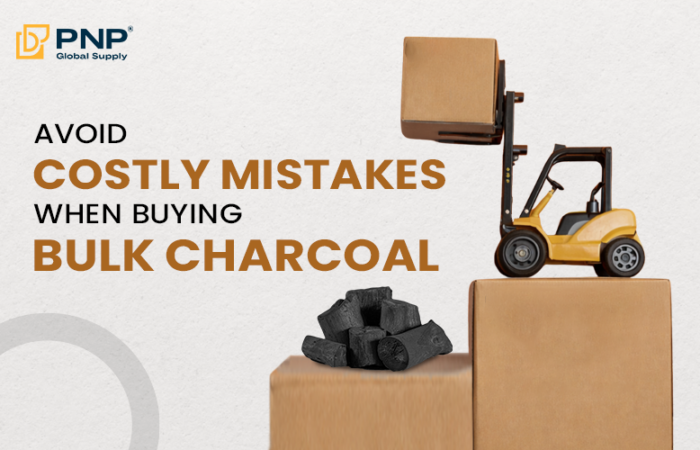Bamboo charcoal is a versatile, eco-friendly material derived from bamboo plants, known for its porous structure and impressive adsorption properties. Unlike regular wood charcoal, bamboo charcoal is produced specifically from bamboo stalks, branches, through a process called pyrolysis—burning in a low-oxygen environment at high temperatures. This sustainable resource has been used for centuries, particularly in Asia, with historical records dating back to the Ming Dynasty in China (1486). Today, it’s gaining global attention for its environmental benefits and wide range of applications.
So, what exactly sets bamboo charcoal apart? Bamboo, a fast-growing grass, matures in just 3-5 years, making it a renewable alternative to traditional hardwoods that take decades to grow. The most common type used for charcoal production is Moso bamboo, prized for its density and durability. Once processed, bamboo charcoal becomes a lightweight, highly porous substance with a surface area that can reach up to 600-1200 square meters per gram when activated. This porosity is what makes it a powerhouse for trapping impurities, odors, and moisture.
At its core, bamboo charcoal is a natural adsorbent—not to be confused with “absorbent.” Adsorption means it attracts and holds particles on its surface, rather than soaking them up like a sponge. This unique characteristic answers the question, what does bamboo charcoal do? It purifies, deodorizes, and regulates environments, making it a go-to solution for both household and industrial needs.
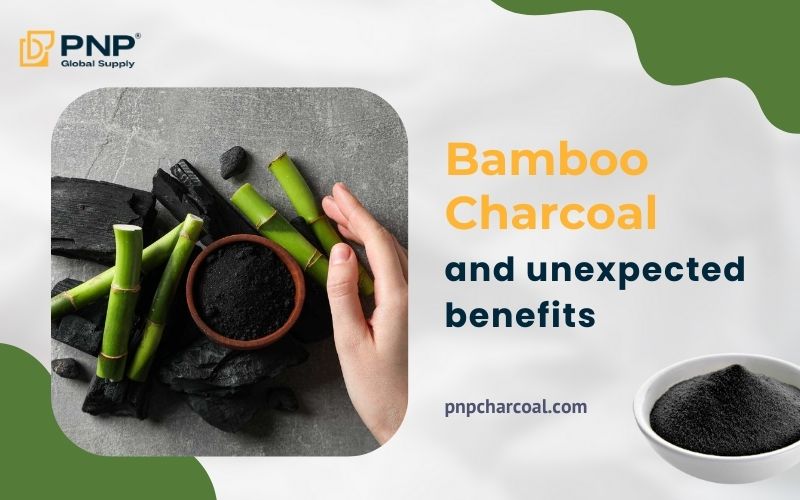
How is Bamboo Charcoal Made?
The production of bamboo charcoal is a fascinating blend of traditional techniques and modern sustainability practices. Here’s a step-by-step look at how it’s made:
- Harvesting Bamboo: Mature bamboo, typically 3-5 years old, is cut from sustainable plantations. Only certain parts—like culms (stalks), branches, or even waste residues—are used, ensuring minimal environmental impact.
- Preparation: The bamboo is cleaned, cut into manageable pieces, and sometimes dried to reduce moisture content. This step ensures efficient burning during the next phase.
- Pyrolysis Process: The bamboo is placed in a kiln or oven and heated at temperatures ranging from 600°C to 1200°C (1100°F to 2200°F) in an oxygen-depleted environment. This prevents complete combustion, transforming the bamboo into carbon-rich charcoal instead of ash. The process can take several hours to days, depending on the desired quality.
- Cooling and Collection: Once carbonized, the bamboo charcoal is cooled naturally and removed from the kiln. At this stage, it’s ready for use as “raw bamboo charcoal” or further processing.
- Activation (Optional): To enhance its adsorption capabilities, some bamboo charcoal undergoes an activation process. This involves exposing it to steam or chemicals at high temperatures, doubling its surface area and making it “activated bamboo charcoal”-a more powerful variant used in specialized applications like water filtration or medical treatments.
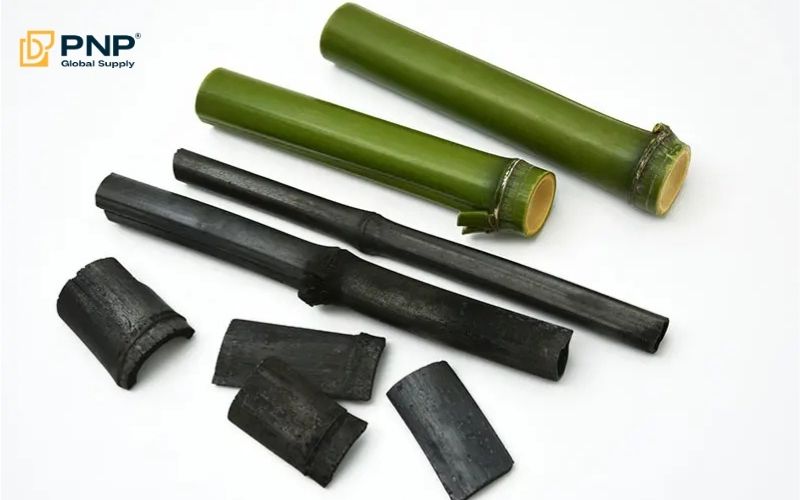
Benefits of Bamboo Charcoal
Bamboo charcoal offers a remarkable range of benefits, answering the question, what is bamboo charcoal good for? From improving air quality to enhancing personal health, here’s why it’s a standout material:
Air Purification & Odor Removal
One of bamboo charcoal’s most celebrated benefits is its ability to purify air and eliminate odors. Its porous structure acts like a natural sponge, trapping pollutants, allergens, and unpleasant smells. Studies, such as one from Nagaoka University of Technology in Japan, have shown that bamboo charcoal effectively removes harmful gases like formaldehyde and benzene from indoor environments. This makes it a popular choice for air purifiers, shoe deodorizers, and fridge fresheners.
Unlike synthetic air fresheners that mask odors with chemicals, bamboo charcoal neutralizes them without adding harmful substances to the air. It’s also reusable-simply place it in sunlight for a few hours every month to “recharge” its adsorption capacity, and it can last up to two years.
Health & Skincare Benefits
Bamboo charcoal’s benefits extend to health and beauty. In skincare, its antibacterial and detoxifying properties make it a star ingredient in soaps, masks, and cleansers. The charcoal draws out impurities, excess oil, and toxins from the skin, leaving it clean and refreshed without stripping natural moisture. It’s gentle enough for sensitive skin, reducing the risk of allergic reactions compared to chemically treated alternatives.
In traditional medicine, particularly in Asia, bamboo charcoal has been used to aid digestion, detoxify the body, and even treat hangovers—though scientific evidence for these claims is limited. Activated bamboo charcoal, a more potent form, is used in emergency rooms to adsorb poisons, showcasing its powerful cleansing abilities.
Bamboo Charcoal in Cooking & BBQ
For culinary enthusiasts, bamboo charcoal shines as a sustainable fuel source. It burns hotter and cleaner than wood charcoal, producing less smoke and ash. In countries like Japan and China, it’s a traditional choice for grilling, imparting a subtle, smoky flavor to food. Its heat retention properties also make it ideal for barbecues, ensuring consistent cooking temperatures.
Beyond fuel, bamboo charcoal can be infused into water to soften it and remove impurities like chlorine, enhancing the taste of drinking water or tea. This dual-purpose functionality highlights its versatility in the kitchen.
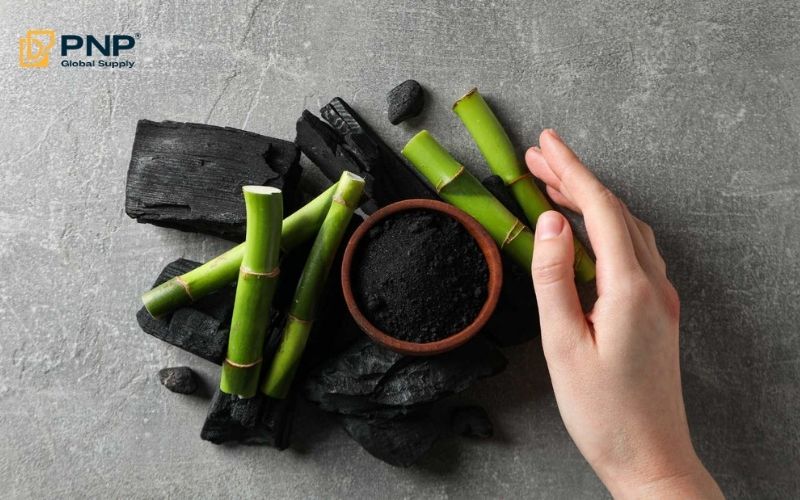
Bamboo Charcoal vs. Other Types of Charcoal
How does bamboo charcoal stack up against other charcoals like wood, coconut, or coal-based options? Here’s a comparison:
Bamboo Charcoal vs. Wood Charcoal: Bamboo charcoal has four times the absorption rate and ten times the surface area of regular wood charcoal, making it more effective for purification. It’s also more sustainable, as bamboo grows faster than trees.
Bamboo Charcoal vs. Coconut Charcoal: Coconut charcoal, made from coconut shells, is another eco-friendly option with high porosity, often used in activated forms for water filtration. However, bamboo charcoal excels in odor removal and humidity regulation, while coconut charcoal may edge out in heavy-duty purification tasks.
Bamboo Charcoal vs. Coal: Coal-based charcoal, while widely available, is less environmentally friendly due to its fossil fuel origins. Bamboo charcoal offers a renewable alternative with superior adsorption and fewer pollutants.
The takeaway? Bamboo charcoal strikes a balance between sustainability, performance, and versatility, making it a top contender for eco-conscious users.
How to Use Bamboo Charcoal in Daily Life?
Wondering what is bamboo charcoal used for in practical terms? Here are some easy ways to incorporate it into your routine:
- Air Freshening: Place bamboo charcoal bags in closets, cars, or refrigerators to eliminate odors and maintain freshness. A 200-gram bag can purify a small room for months.
- Water Purification: Drop a few pieces of bamboo charcoal into a pitcher of water. Let it sit for 4-8 hours to remove impurities and improve taste. Rinse the charcoal beforehand to remove dust.
- Soil Enhancement: Mix crushed bamboo charcoal (or biochar) into garden soil to retain moisture, boost nutrients, and improve aeration. It’s a natural way to support plant growth.
- Skincare Routine: Use bamboo charcoal-infused soaps or masks to cleanse and detoxify your skin. Look for products with natural ingredients for the best results.
- Cooking: Use bamboo charcoal briquettes for grilling or barbecues. They’re easy to light, long-lasting, and eco-friendly.
- Humidity Control: Place charcoal in damp areas like basements or bathrooms to absorb excess moisture and prevent mold growth.
Its reusability and simplicity make bamboo charcoal a low-maintenance addition to daily life. After its lifespan, you can even compost it, closing the sustainability loop.
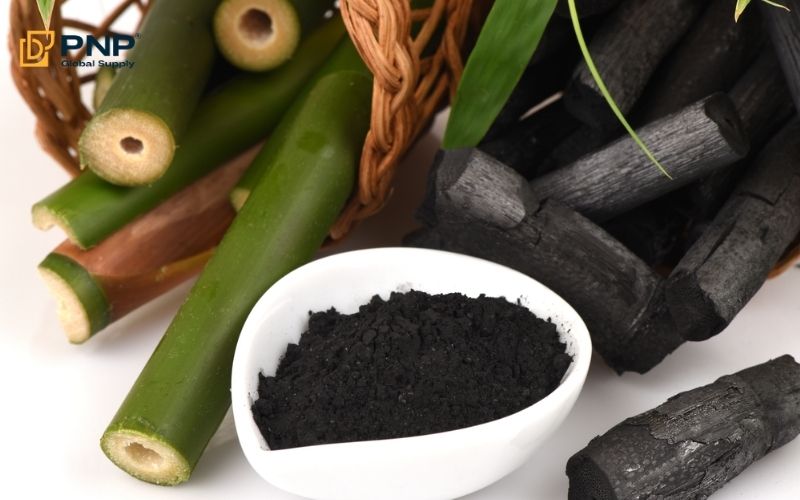
Where to Buy High-Quality Bamboo Charcoal?
Finding a reliable and high-quality charcoal source is essential to maximizing its benefits. Instead of bamboo charcoal, you can opt for alternative types such as sawdust charcoal, coconut charcoal, and white charcoal, which offer comparable effectiveness in various applications.
PNP Charcoal is a manufacturer and supplier of these alternative charcoal products, ensuring transparent and eco-friendly production processes. With a diverse product range, PNP meets demands for air purification, water filtration, and various industrial applications. Learn more at pnpcharcoal.com.
When shopping, consider these tips:
- Check the Source: Opt for Moso bamboo-based charcoal from reputable regions like Asia, where bamboo cultivation thrives.
- Look for Activation: If you need it for heavy-duty tasks (e.g., water treatment), choose activated bamboo charcoal.
- Read Reviews: Customer feedback can guide you to trusted brands.
- Sustainability Certifications: Ensure the product aligns with environmental standards.
Online marketplaces like Amazon or specialty eco-stores also carry bamboo charcoal, but partnering with a dedicated supplier like PNP Charcoal ensures quality and consistency.
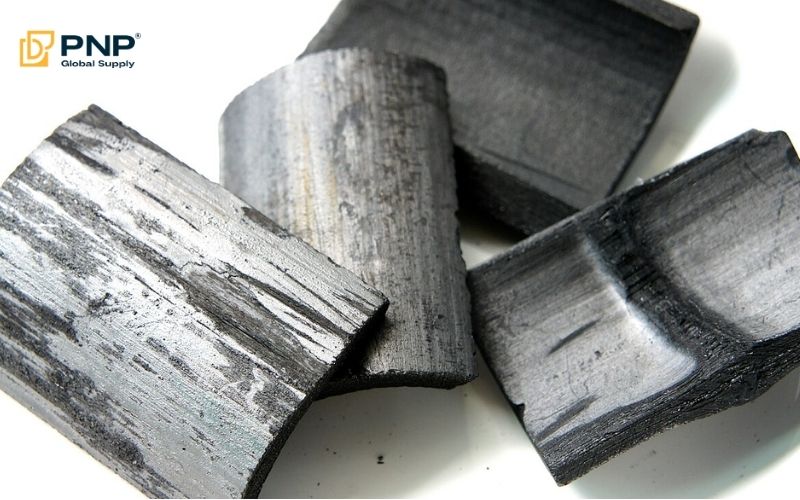
Frequently Asked Questions About Bamboo Charcoal
1. How Long Does Bamboo Charcoal Last?
Bamboo charcoal can last up to two years for air purification or odor removal if maintained properly. To extend its life, place it in direct sunlight for 2-3 hours every month to release trapped particles and recharge its adsorption capacity. For water filtration or skincare, its lifespan depends on usage frequency, but it typically remains effective for several months.
2. Is Bamboo Charcoal Safe to Use?
Yes, bamboo charcoal is safe for most applications when sourced from reputable suppliers. It’s a natural, chemical-free material with no toxic additives, making it suitable for air purification, skincare, and even cooking. However, ensure it’s food-grade if used in water or culinary applications, and avoid ingesting raw charcoal unless it’s medically approved, such as activated charcoal for detoxification.
3. Can Bamboo Charcoal Be Recycled or Composted?
Absolutely! After its adsorption capacity diminishes, bamboo charcoal can be crushed and added to compost or garden soil as biochar. This enhances soil fertility and moisture retention, making it a zero-waste product. Unlike synthetic alternatives, it biodegrades naturally, aligning with its eco-friendly reputation.

